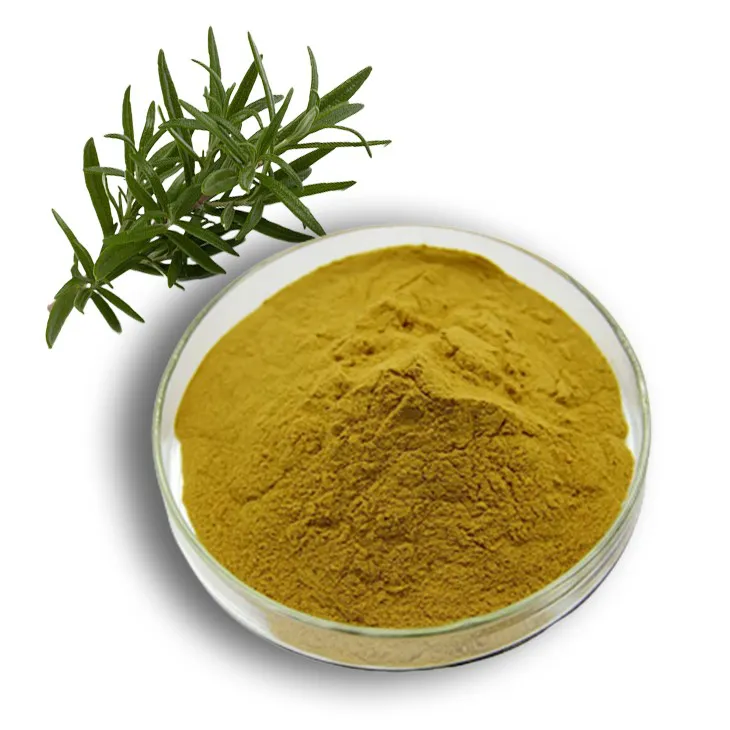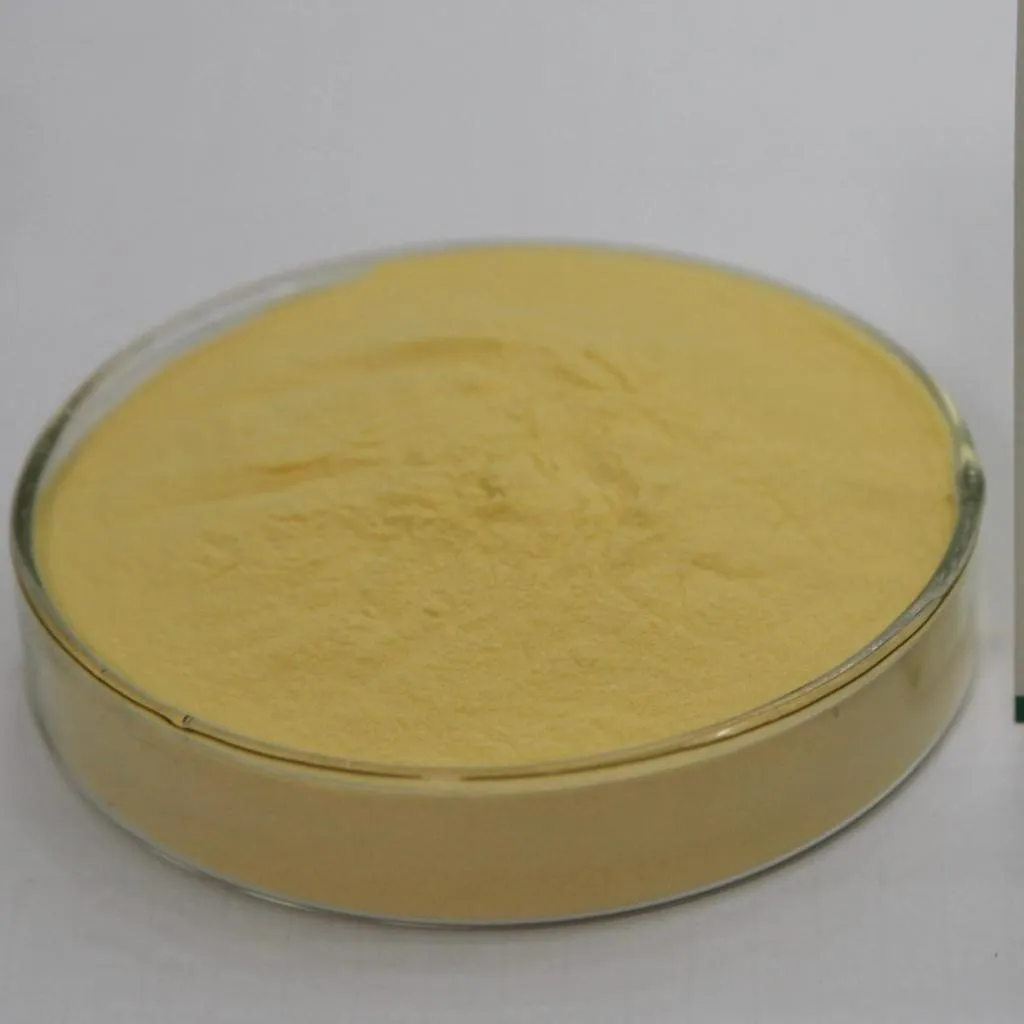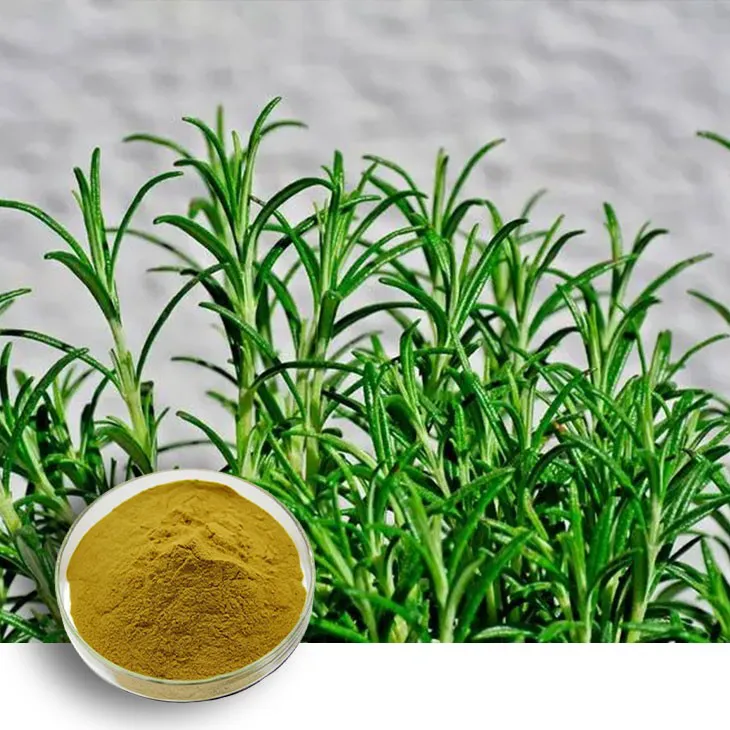- 0086-571-85302990
- sales@greenskybio.com
Rosemary extract: Is the extract effective for weight loss?
2024-11-12

1. Introduction
In recent years, the search for natural and effective ways to manage weight has led to an increased interest in various plant - based extracts. Rosemary extract, derived from the rosemary plant (Rosmarinus officinalis), has emerged as a potential candidate in the realm of weight loss. This article aims to comprehensively explore whether Rosemary extract is truly effective for weight loss by examining scientific research, understanding its possible mechanisms, and looking at practical applications.

2. Rosemary extract: An Overview
Rosemary is a well - known herb with a long history of use in cooking, traditional medicine, and aromatherapy. The extract is rich in various bioactive compounds, including rosmarinic acid, carnosic acid, and carnosol.
These compounds are believed to be responsible for many of the health - promoting properties associated with rosemary extract. In particular, their antioxidant, anti - inflammatory, and antimicrobial activities have been well - studied. However, their role in weight loss is a relatively new area of investigation.

3. Scientific Research on Rosemary Extract and Weight Loss
3.1. Animal Studies
Several animal studies have provided some evidence regarding the potential of rosemary extract in weight management.
For example, in a study on rats fed a high - fat diet, those supplemented with rosemary extract showed a significant reduction in body weight gain compared to the control group. The researchers hypothesized that the antioxidant properties of the extract may have played a role in reducing oxidative stress associated with obesity.
Another study in mice found that rosemary extract affected lipid metabolism. Mice given rosemary extract had lower levels of triglycerides and cholesterol in their blood, which could potentially contribute to weight loss. It was suggested that the extract might regulate the expression of genes involved in lipid synthesis and metabolism.
3.2. Human Studies
While animal studies offer some promising insights, human studies on the direct effect of rosemary extract on weight loss are relatively limited.
One small - scale study involved obese individuals who were given a supplement containing rosemary extract for a certain period. Although there were some indications of a reduction in body mass index (BMI) in the treatment group, the results were not conclusive due to the small sample size and the presence of confounding factors such as diet and exercise variations among the participants.
However, a few observational studies have noted an association between a diet rich in rosemary - containing foods and a lower prevalence of obesity. This could imply that regular consumption of rosemary or its extract might have a positive impact on weight, but more research is needed to establish a causal relationship.

4. Possible Mechanisms of Action
4.1. Appetite Suppression
One possible mechanism by which rosemary extract could aid in weight loss is through appetite suppression. Some studies suggest that certain compounds in the extract may interact with the body's hormonal systems that regulate hunger and satiety.
For instance, it may influence the levels of hormones such as ghrelin (the "hunger hormone") and leptin (the "satiety hormone"). By reducing ghrelin levels or enhancing leptin sensitivity, rosemary extract could potentially lead to a decrease in food intake.
4.2. Metabolism Boost
Another proposed mechanism is an increase in metabolic rate. Rosemary extract may stimulate the body's metabolism, leading to more calories being burned at rest.
It could potentially enhance the function of mitochondria, the powerhouses of the cells, which are responsible for energy production. By improving mitochondrial function, the body may be able to convert food into energy more efficiently, thereby burning more calories and potentially contributing to weight loss.
4.3. Anti - Inflammatory Effects
Chronic inflammation is often associated with obesity. Rosemary extract's anti - inflammatory properties may play a role in weight loss.
By reducing inflammation in the body, it could improve insulin sensitivity. Insulin resistance is a common feature in obese individuals and can lead to abnormal glucose and lipid metabolism. Improved insulin sensitivity may help regulate blood sugar levels and lipid metabolism, which are crucial factors in weight management.

5. Practical Applications
5.1. Dietary Incorporation
One of the simplest ways to potentially benefit from rosemary extract for weight loss is through dietary incorporation. Rosemary can be added to a variety of foods, both cooked and raw.
- It can be used as a seasoning in roasted meats, adding flavor while potentially providing the benefits of the extract.
- Sprinkling fresh or dried rosemary on salads or vegetables is another option, making the diet more interesting and potentially contributing to weight management.
5.2. Supplements
Rosemary extract supplements are also available on the market. However, when considering using supplements, it is important to exercise caution.
Firstly, the quality and purity of supplements can vary greatly. It is essential to choose a reputable brand that adheres to strict manufacturing standards.
Secondly, supplements should not be seen as a substitute for a healthy diet and lifestyle. They should be used in conjunction with a balanced diet, regular exercise, and other healthy habits.
6. Conclusion
In conclusion, while there is some evidence from scientific research, both in animals and to a lesser extent in humans, suggesting that rosemary extract may have potential in weight loss, more research is still needed. The possible mechanisms of action, such as appetite suppression, metabolism boost, and anti - inflammatory effects, are promising areas for further investigation.
At present, incorporating rosemary into the diet through natural food sources can be a healthy and potentially beneficial approach for those interested in weight management. However, when it comes to using rosemary extract supplements, careful consideration and consultation with a healthcare professional are advisable.
FAQ:
1. What is Rosemary Extract?
Rosemary extract is a substance derived from the rosemary plant (Rosmarinus officinalis). It contains various bioactive compounds such as rosmarinic acid, carnosic acid, and carnosol. These compounds are known for their antioxidant, anti - inflammatory, and antimicrobial properties.
2. How could Rosemary Extract potentially aid in weight loss?
One possible way is through its effect on metabolism. Some studies suggest that the bioactive compounds in rosemary extract may increase the body's metabolic rate. Also, it might play a role in reducing fat absorption in the digestive tract. Additionally, its anti - inflammatory properties could potentially help in improving insulin sensitivity, which is related to better weight management.
3. Are there any scientific studies on Rosemary Extract for weight loss?
Yes, there are some scientific studies. For example, some in - vitro and animal studies have shown that certain components of rosemary extract can influence lipid metabolism and reduce fat accumulation. However, more human - based clinical trials are needed to firmly establish its effectiveness for weight loss in humans.
4. What are the side effects of using Rosemary Extract for weight loss?
When used in moderation, rosemary extract is generally considered safe for most people. However, in some cases, it may cause allergic reactions, especially in those who are allergic to plants in the Lamiaceae family. Also, high - dose supplementation may lead to digestive issues such as stomach upset or diarrhea.
5. How can one incorporate Rosemary Extract into a weight loss plan?
One can add rosemary extract as a supplement, following the recommended dosage instructions. It can also be consumed in the form of rosemary tea. Additionally, using rosemary as a spice in cooking can be another way to potentially get the benefits, although the amount of extract obtained this way may be relatively small compared to supplements.
Related literature
- The Effects of Rosemary Extract on Metabolic Syndrome"
- "Rosemary Extract: Bioactive Compounds and Their Potential Role in Obesity Management"
- "Rosemary Extract and Its Impact on Lipid Metabolism in Animal Models"
- ▶ Hesperidin
- ▶ citrus bioflavonoids
- ▶ plant extract
- ▶ lycopene
- ▶ Diosmin
- ▶ Grape seed extract
- ▶ Sea buckthorn Juice Powder
- ▶ Beetroot powder
- ▶ Hops Extract
- ▶ Artichoke Extract
- ▶ Reishi mushroom extract
- ▶ Astaxanthin
- ▶ Green Tea Extract
- ▶ Curcumin Extract
- ▶ Horse Chestnut Extract
- ▶ Other Problems
- ▶ Boswellia Serrata Extract
- ▶ Resveratrol Extract
- ▶ Marigold Extract
- ▶ Grape Leaf Extract
- ▶ blog3
- ▶ blog4
- ▶ blog5
-
Organic Tongkat Ali extract powder factory.
2024-11-12
-
How to make powder with ashwagandha extract.
2024-11-12
-
Rosehip extract manufacturers from China.
2024-11-12
-
The best cat's claw extract in nature.
2024-11-12
-
Chinese Dandelion Leaf Extract Suppliers.
2024-11-12
-
Green coffee bean Extract
2024-11-12
-
Eyebright Extract
2024-11-12
-
Ivy Extract
2024-11-12
-
Europen Bilberry Extract
2024-11-12
-
Yellow Pine Extract
2024-11-12
-
Wheat Germ Extract
2024-11-12
-
Sophora Japonica Flower Extract
2024-11-12
-
Epimedium extract powder
2024-11-12
-
Rosemary extract
2024-11-12
-
Maca Extract
2024-11-12




















